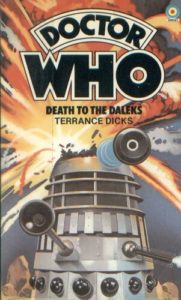I’ve a friend who insists, really strongly insists, that he has no accent whatsoever. He’s American. I just look at him. But then this week, I was asked if I had deliberately changed my own accent.
I’m from Birmingham in the UK and if it’s fair to say we have a particular accent, then it’s very unfair how that accent gets maligned. When a Cockney tells you that your accent makes you sound stupid, truly the only thing you can say is “goodbye”.
As it happens, I don’t speak in a particularly Birmingham accent, but I am deeply uncomfortable at the idea I might have deliberately done that. I vow to you that I haven’t, but the very idea cuts deep into me and in part, I think because it connects to a key failing I think I have in my writing.
Let me triple underline that I have not and would not deliberately change my accent. I’m told that at times a sudden stab of Brummie will come out of me in some particular word. Good. If I cannot change my accent to avoid Brummie, I suppose I can’t in all conscience choose to change it so that I am more Birmingham, but I am proud of where I come from and where I live now, and enough so that I want you to know. If you get that from me actually telling you, fine. If you get it from a sudden Brummie word, all the better.
I used to tell people that my accent is what it is because I grew up watching Bob Hope films. But as I said to the person who asked me about it this week, I’m no longer comfortable saying that because of how Hope treated his writers.
He used to make them all stand at the bottom of some stairs while he was at the top. He would write their cheques and throw them down to them.
Maybe I could just amend my accent explanation, maybe I could just be more precisely accurate. I grew up watching the Road movies that Bob Hope and Bing Crosby were in. Seven movies from 1940 to 1960-something, so long before I was born, but films like Road to Singapore, Road to Rio.
My favourite is Road to Morocco, and probably because it contains one of my favourite lines from any film. It’s a quite tortuous line that Hope and Crosby manage to sing on their journey and it goes: “Like Webster’s International Dictionary, we’re Morocco-bound.”
Now you’re looking at me.
I wonder if my clearly British but otherwise not apparently very precise accent is less my exposure to American films, and more because of this writing failure.
I could tell you the history of Birmingham. I have been a kind of tour guide for the place, I’ve dragged friends from the US and Canada around it. With friend and writer Yasmin Ali, I’ve put a visitor from Myanmar through every possible site in the city. I remember when I eventually left him and Yasmin, I actually sank to the street, my legs were evaporated.
When an interviewee recently described Manchester as Britain’s second city, I switched off the audio recorder and gave him a talking to.
When a college friend insisted that actually Nottingham should be the second city, I explained “Bollocks”.
Yet apart from right now, here, talking with you, I don’t think you ever see Birmingham in my writing. It’s certainly not from any particular decision, and I do have a current script that’s set here in the city, but my writing is definitely not riddled with my home town.
And I do think that’s a failing.
Alan Plater’s work, for instance, was so often not just set in the North East, but positively imbued with the place. You can think of so many more, too. Places, usually home towns, that seep into a writer’s work and, I think, give it something I lack.
I have set more writing in the TARDIS than I have in Birmingham.
And this is all on my mind again because the friend who asked about my accent did so at a book event. There’s a new book called “Spake: Dialect and Voices from the West Midlands“, published by the great Nine Arches Press. It’s a collection of prose and poetry and essays about and using the dialects –
– sudden flashback to school. I’m in a technology lesson and the teacher is talking about computer languages and dialects. Then he finally writes that word on the board and the whole class goes “Oh, I see” because it had kept sounding like he was saying “Daleks”.
The book is funny and insightful and it’s a collection of writing from writers whose work I relish and some of whom, I know and relish as people too.
Each piece is about myriad other topics as well, but they all touch on location and they are all deeply steeped in the different regional accents and dialects of the West Midlands. I think sometimes it’s piled on a bit for effect, but the effect is brilliant.
The more precisely defined that a region is in these pieces, the more specific and particular the words and the grammar and the sounds of the writing, the more universal it all is. You may not know what a particular word means, but still it gives the writing life and verve.
You can’t make this stuff up, I can’t fake an accent I don’t have, and I suspect my writing will always lack this core, but that doesn’t mean I have to be okay about it.

